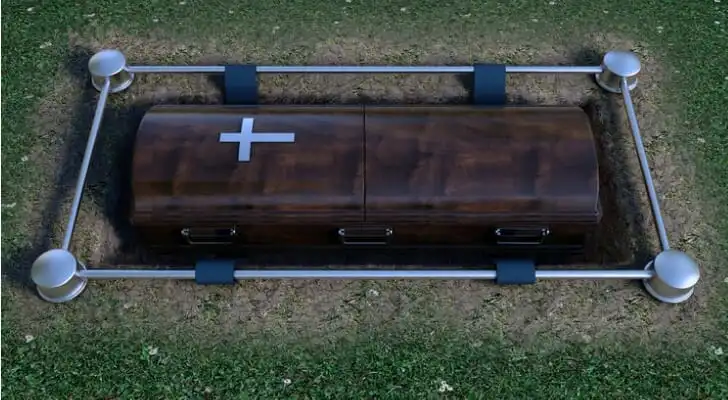Funerals are often a meaningful way to honor a loved one, but they can also come with significant costs. This leads many to ask: Are funeral expenses tax deductible? Generally, they are not deductible for individuals paying out of pocket. However, if the costs are covered by the deceased’s estate, certain expenses may qualify for a deduction on the estate’s tax return.
Consider working with a financial advisor as you create or update your estate plan.
How Much Do Funerals Cost?
Funeral costs vary from region to region and the details of the burial service. According to the National Funeral Directors Association, the average cost of a funeral with a viewing and burial is $7,848. For families that choose cremation, the average drops to $6,971. Because funerals can be a major expense for some families, Social Security and the Department of Veterans Affairs (if eligible based on military service) provide benefits to help defray the costs.
The ability to deduct funeral expenses on your tax return depends on who paid for the funeral expenses. Unfortunately, funeral expenses are not tax-deductible for individual taxpayers. This means that you cannot deduct the cost of a funeral from your individual tax returns.
While individuals cannot deduct funeral expenses, eligible estates may be able to claim a deduction if the estate paid these costs. However, only estates the exceed the federal estate and gift tax exemption limit ($13.99 million in 2025; $15 million in 2026) can use this deduction.
Which Estates Can Deduct Funeral Expenses?

If an estate exceeds the $13.99 million federal estate tax exemption limit in 2025, the executor can claim eligible deductions to reduce the taxable value. With estate tax rates ranging from 18% to 40%, itemizing deductions can lead to substantial tax savings. Funeral expenses can be reported on Schedule J of Form 706, with each cost itemized to show how funds were used.
If the estate received any reimbursements for funeral costs—such as payments from Social Security, Veterans Affairs or final expense insurance—those amounts must be subtracted from the deduction total.
Tax-Deductible Funeral Expenses
If funeral expenses are being claimed on an estate tax return, keep in mind that only certain costs qualify for a deduction—and they must be reasonable. Eligible expenses generally include:
- Embalming or cremation
- Casket or urn
- Burial plot and burial (internment)
- Green burial services
- Tombstone, gravestone or other grave markers
- Funeral home facility costs and director fees
- Funeral service arrangement costs, including floral and catering services
- Transportation costs for the deceased and immediate family members
- Minister, rabbi or other religious leader service fees
- Catering food at the reception
Keep detailed records and copies of receipts to support each expense claimed on Schedule J of Form 706. Reimbursed amounts must be subtracted before calculating the deduction.
Non-Deductible Funeral Expenses
Some funeral-related costs cannot be claimed as deductions on an estate tax return, even if they are customary or necessary. These include:
- Travel expenses for funeral guests
- Obituary notices placed in newspapers or online
- Memorial keepsakes (e.g., printed programs, bookmarks, or tribute items)
- Post-funeral receptions or gatherings beyond a modest catered event
- Floral arrangements purchased by guests or family members
- Professional photography or videography services
- Donations made in memory of the deceased
- Costs paid personally by family or friends rather than by the estate
- Any expenses reimbursed by Social Security, VA benefits or insurance policies
Bottom Line
Funeral expenses can cost thousands of dollars on average. With such a large expense, it is common to wonder if funeral expenses are tax-deductible. Being able to reduce your taxes can minimize the financial impact on your family. While you cannot claim funeral expenses on an individual tax return, you may be able to deduct them from your estate tax return if the size of your estate qualifies.
Estate Planning Tips
- Figuring out how to pay for a funeral and cover other expenses after you’ve passed away can be a challenge. A financial advisor can help you determine the right amount of life insurance and find the best type of policy for your situation. Finding a qualified financial advisor doesn’t have to be hard. SmartAsset’s free tool matches you with vetted financial advisors who serve your area, and you can have a free introductory call with your advisor matches to decide which one you feel is right for you. If you’re ready to find an advisor who can help you achieve your financial goals, get started now.
- Rather than relying on your family to pay for funeral expenses, many people choose life insurance. These policies are generally large enough to cover multiple goals. These goals include burial expenses, college for kids or grandkids, paying off the mortgage and eliminating household debt. To determine how much life insurance you need, our life insurance calculator provides a personalized recommendation based on your financial situation and goals.
Photo credit: ©iStock.com/designer491, ©iStock.com/allanswart, ©iStock.com/urbazon

